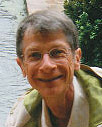Personal Writing
In recent years, personal writing has risen in regard in literary circles, as one subgenre of creative nonfiction. Two influences in this elevation have been the field of cultural studies, which has leveled the hierarchy of traditional literary genres, and postmodernism, which values the personal and relative over the objective and universal.
In this issue:
-
0
read more

Daddy’s Girl
by Shirley H. ShowalterShowalter's narrative of her early teenage encounter with her father amid tobacco culture among Lancaster County Mennonites is densely personal, cultural and literary.
-
4
read more

Grist for the Mill
by Ann HostetlerAnn Hostetler reviews a recently published book of poems by Helen Alderfer. We tend to assume that lyric poems reflect something of the author's life and feelings, but in this book the poems even become a kind of lifetime memoir in verse, scanning the author's life from childhood to advanced age.
-
0
read more

Menno Pause Revisited
by J. Daniel HessIn this memoir, derived from personal experience,Hess gives a personal—yet restrained and reportorial—account of a crisis at Goshen College that has become legendary among students.
-
1
read more

Silence, Memory and Imagination as Story
by Connie T. BraunIn her essay, "Silence, Memory and Imagination as Story: Canadian Mennonite Life Writing," Connie T. Braun articulates Paul Ricoeur's theory regarding memory and narrative and applies it to the historical Mennonite experience found in two masterworks of recent Mennonite fiction, Rudy Wiebe's Sweeter Than All the World and Sandra Birdsell's Russlaender (published in the U.S. as Katya).
-
1
read more

Three Poems
by Robert MartensRobert Martens transforms into lyric poetry his childhood experience of growing up in the Mennonite community in British Columbia's Fraser Valley. The three poems appearing here move through depictions of his childhood village, Sunday School pranks, and adult experience in the city.